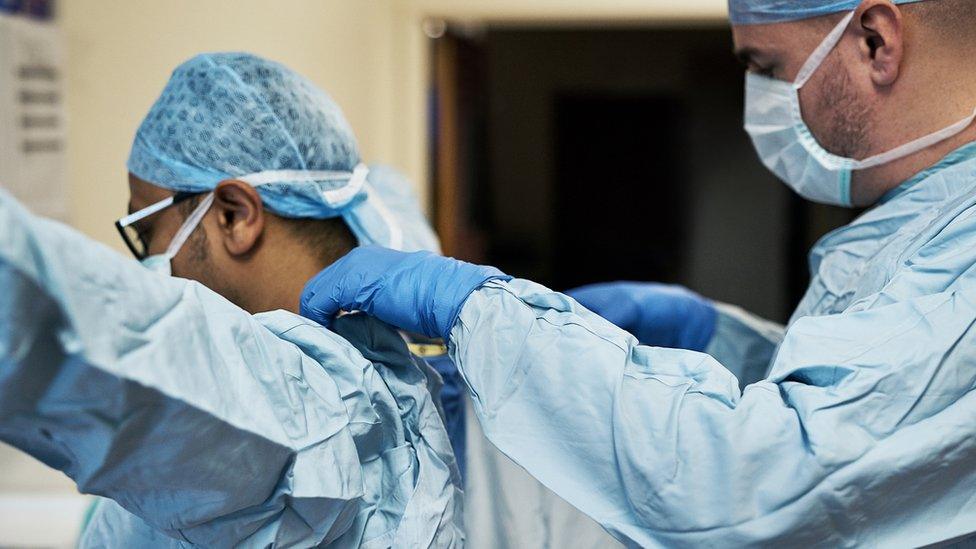Covid inquiry: Men's masks given to female nurses
- Published
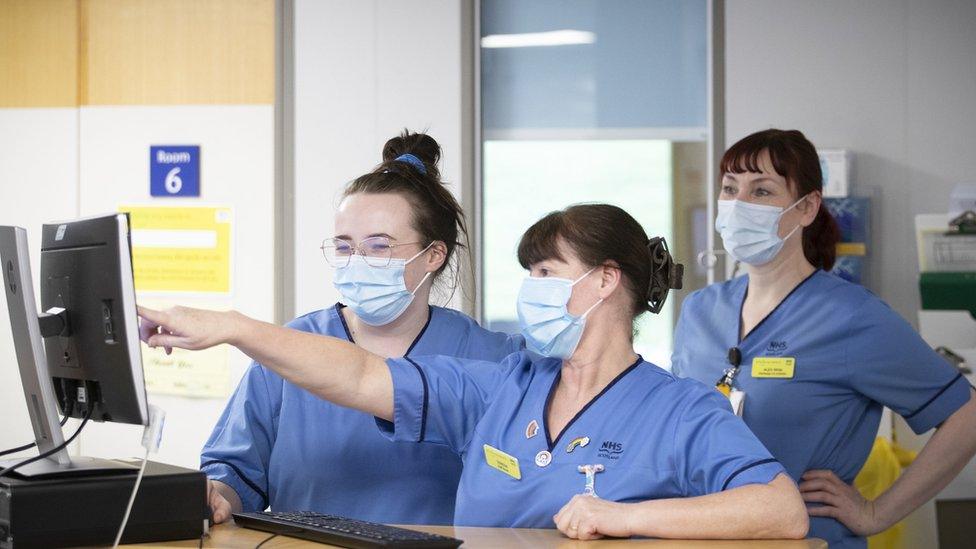
Disposable face masks became a part of everyday kit for medical staff during the pandemic
Female nurses in Scotland were regularly being given face masks designed for men during the Covid pandemic, a public inquiry has heard.
The Royal College of Nursing (RCN) told the Scottish Covid Inquiry that female nurses were warning their masks would not always fit properly as a result.
RCN Scotland director Colin Poolman said the inadequacy of PPE given to its members "was staggering" at times.
Better PPE would have cut the number of NHS staff getting Covid, the RCN added.
Scotland's Covid public inquiry is investigating what happened during the country's response to the pandemic, to work out what lessons can be learned for future public health emergencies.
Mr Poolman was asked about the supply and distribution of personal protective equipment (PPE) to nurses. He said many RCN members struggled to get higher grade masks, which form a seal around the nose and mouth, to fit properly.
He said: "Nursing is a predominantly female profession and many of the masks were not designed in smaller sizes so we had huge issues at times.
"The inadequacy [of PPE] was staggering in some ways. There were members of staff being asked to reuse PPE that was not designed to be reused, for example, because there wasn't adequate supplies.
"The type of PPE was not always fit for the situation it was being asked to be used in."
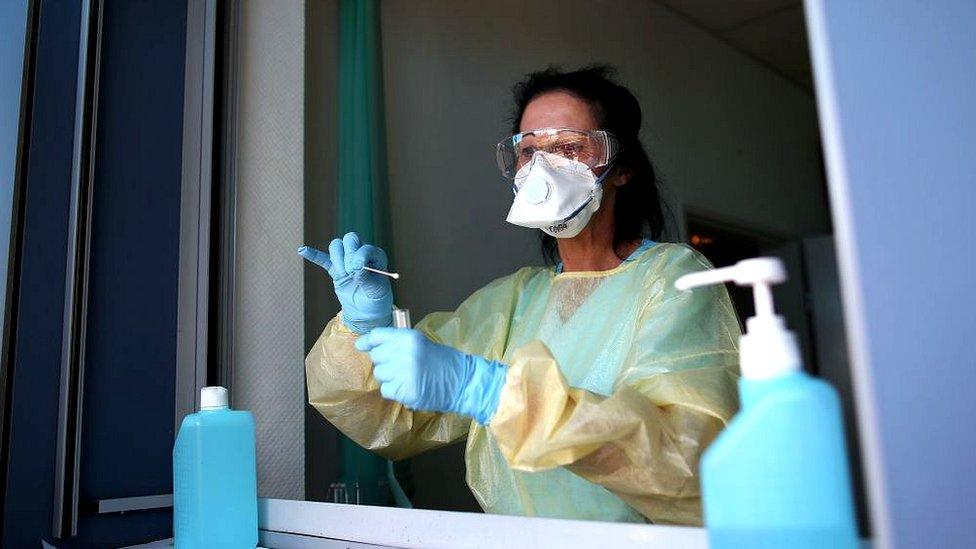
The supply and quality of PPE during the pandemic is under scrutiny at the inquiry
Mr Poolman added: "Members didn't feel prepared [for the pandemic] but they also didn't feel the right guidance was in place and PPE was a significant issue because there was not the provision we believe there should have been."
The RCN Scotland director also claimed the Scottish government "dismissed" concerns about the airborne transmission of Covid during the pandemic.
The nursing union's argument since 2020, which was later backed by the World Health Organisation, was that Covid was airborne but Mr Pullman told the inquiry Scottish ministers did not respond to this point and that they were "dismissed in favour of droplet transmission".
In the first few months of the Covid pandemic there were reports of shortages of some coronavirus protective equipment in the NHS.
'Repurposed bin bags'
It came at a time when global demand for items such as gloves and masks was at unprecedented levels.
Norman Provan, RCN Scotland associate director, told the inquiry a hierarchy of PPE provision emerged in some hospitals where those working in intensive care had sufficient equipment but this was not the case on general wards where he said some gowns used by nurses were "in essence, repurposed bin bags".
He added: "I have absolutely no doubt that there were nurses who contracted Covid at their work who would not have contracted Covid at their work, or would have had significantly less chance of contracting Covid, had they had higher levels of PPE."
Mr Provan also told the inquiry he received a letter from the chief executive of an NHS board claiming it was "impossible" for nurses to get infected with Covid at work because they were being given PPE.
The inquiry before Lord Brailsford continues.

'I can barely make myself a cup of coffee now'
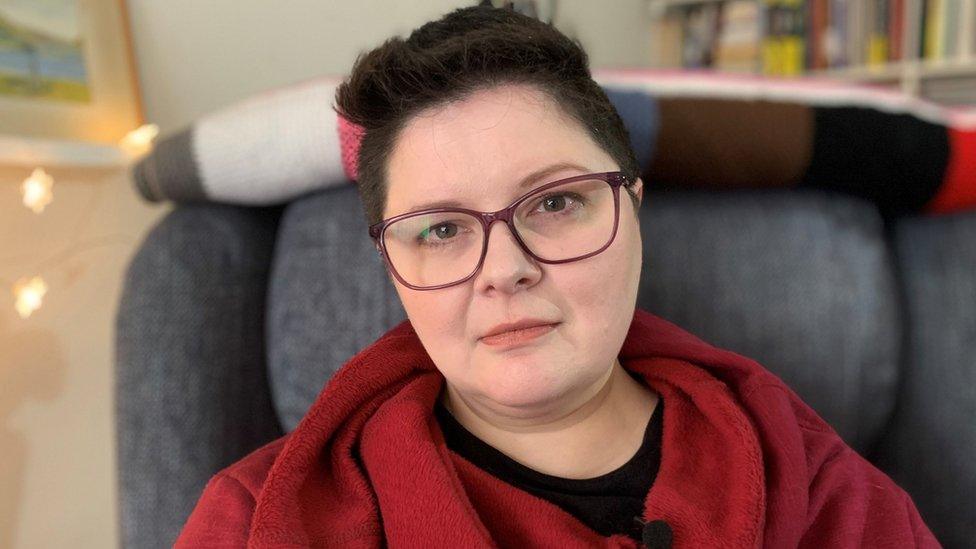
Former nurse Cass Macdonald has had long Covid since 2020
When Edinburgh nurse Cass Macdonald got Covid during the first wave of the virus in April 2020, she had no idea that it was going to end the career she loved.
"Nursing is a huge part of who I am, that is gone and I will never get that back," she says.
The 48-year-old has been dealing with the impact of long Covid ever since, including being medically retired from the profession.
"I used to travel, I used to bake, I used to cook all the time and now I can barely stand up to make myself a cup of coffee," she explains.
"I expected to work until they were carrying me out - this doesn't feel right but I didn't have any choice in the matter."
'Psychological trauma'
Cass pinpoints the pandemic as being a huge factor in the nursing sector's ongoing recruitment problems.
"A lot of nurses have left unwillingly because they've got long Covid but I think there's a tremendous amount of attrition because of the psychological trauma of Covid and the stress of now having to work in a health service that is struggling."
Cass is now campaigning for a long Covid compensation scheme for key workers who she says "feel forgotten" four years on from the start of the pandemic.
- Published24 October 2023
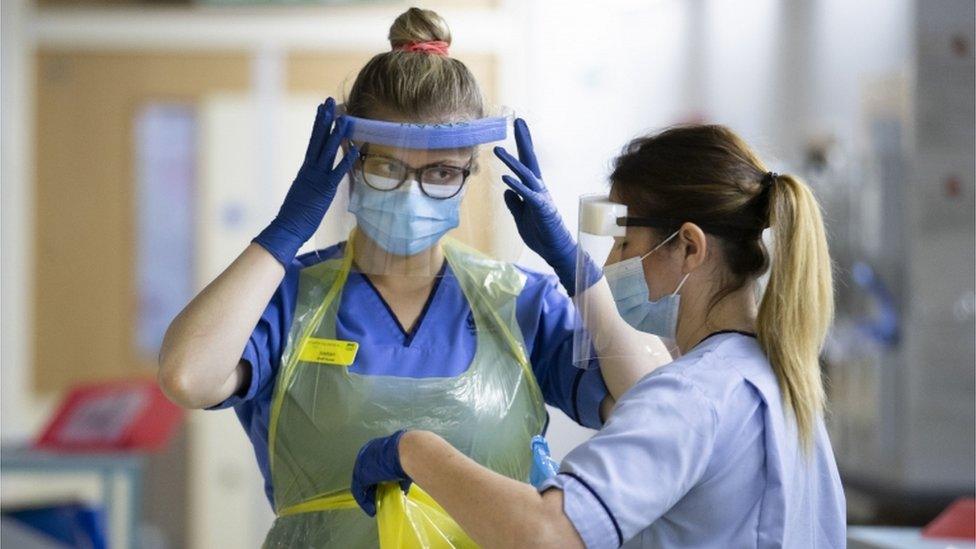
- Published14 March 2024
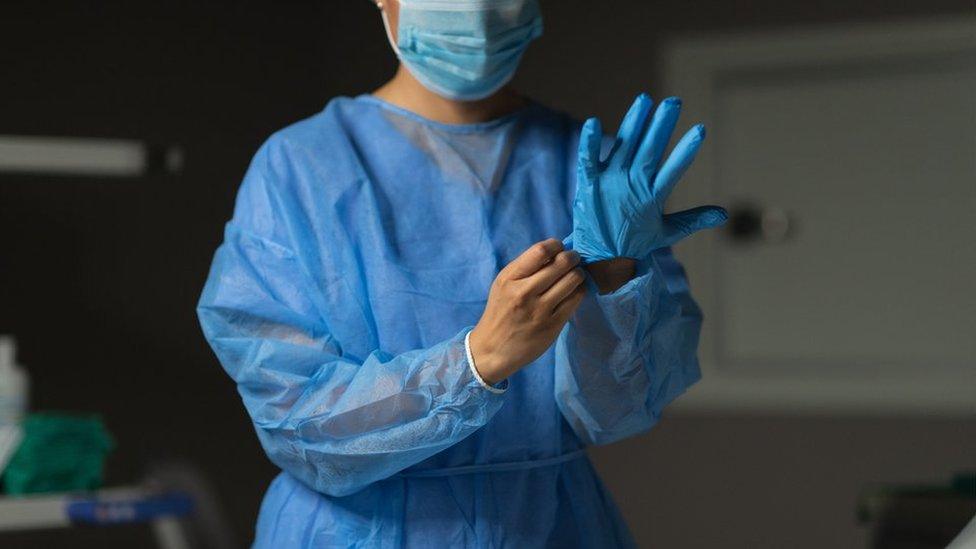
- Published2 May 2020
